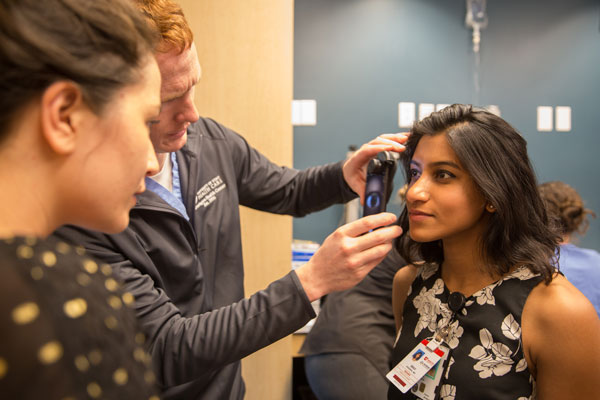Voices of U of U Health
A Culture of Respect
As we prepare for a new academic year, it is appropriate to renew our steadfast commitment to a culture of respect at University of Utah Health. The term refers to the highest standard of behavior in our daily interactions with patients, students, and co-workers. Ideally, a culture of respectful behavior also means an unwavering attitude of respect.
Two troubling aspects of substandard behavior have surged to the forefront in recent years: issues of sexual harassment and gender bias. Academic medical institutions and biomedical sciences are not immune to these issues. The urgency of confronting bias and harassment was discussed extensively at the last annual meeting of the American Association of Medical Colleges. Along with colleagues from U of U Health, I attended the conference in Austin, Texas.

Not Only a Personal Matter
In a keynote address, Brandeis University law professor Anita Hill referenced a report from the National Academies of Science, Engineering, and Medicine that was released last summer. It indicated that many U.S. medical students have experienced sexual harassment. Another report, she said, found that many patients have experienced trauma from sexual violence.
“That trauma is real; that pain is real,” Professor Hill said. “It’s real in the lives of students. It’s real in the lives of patients. Whatever affects any of these individuals directly affects all of us indirectly. It affects our work, our well-being, and how we move forward as a society.”
We’re well beyond the time when harassment is considered a personal matter. As Hill noted, “It has not always been a matter of public and institutional concern. But every place has a responsibility, especially institutes of higher education, to attend to issues of inequality and outright abuse. You cannot call yourself an institute of higher education if such matters are tolerated. We must take on the matters within our institutions. We must create a culture of accountability, of shared awareness, and shared responsibility. We cannot continue to put a burden on those who are hurting the most to come forward and address these issues on their own.”
Opportunity and Obligation
At U of U Health, we agree with the message that we have an opportunity and an obligation to step up. Professor Hill stressed that we in health care cannot turn a blind eye to any kind of disrespect: “Yes, there are sexual harassment deniers, but we outnumber them. We have to be louder than the deniers.”

Our U of U Health culture of respect means zero tolerance for leaders, faculty, students, and staff who engage in harassment and bias. In our classrooms, clinics, and labs we must craft curricula that help students recognize and treat sexual violence. We also need to understand and guard against non-violent forms of harassment and bias.
Our culture of respect is also the window through which we find joy in our work. When we respectfully engage with our patients, with our learners, and with one another, we discover amazing aspects of each other’s lives. We connect in deeper and more meaningful ways. We get excited to help a colleague succeed, and in doing so, enrich our own lives.
By personal example and through instruction, we must motivate our students to maintain high standards of respect in every interaction during their years on our campus. I believe such standards are likely to carry into their careers.
